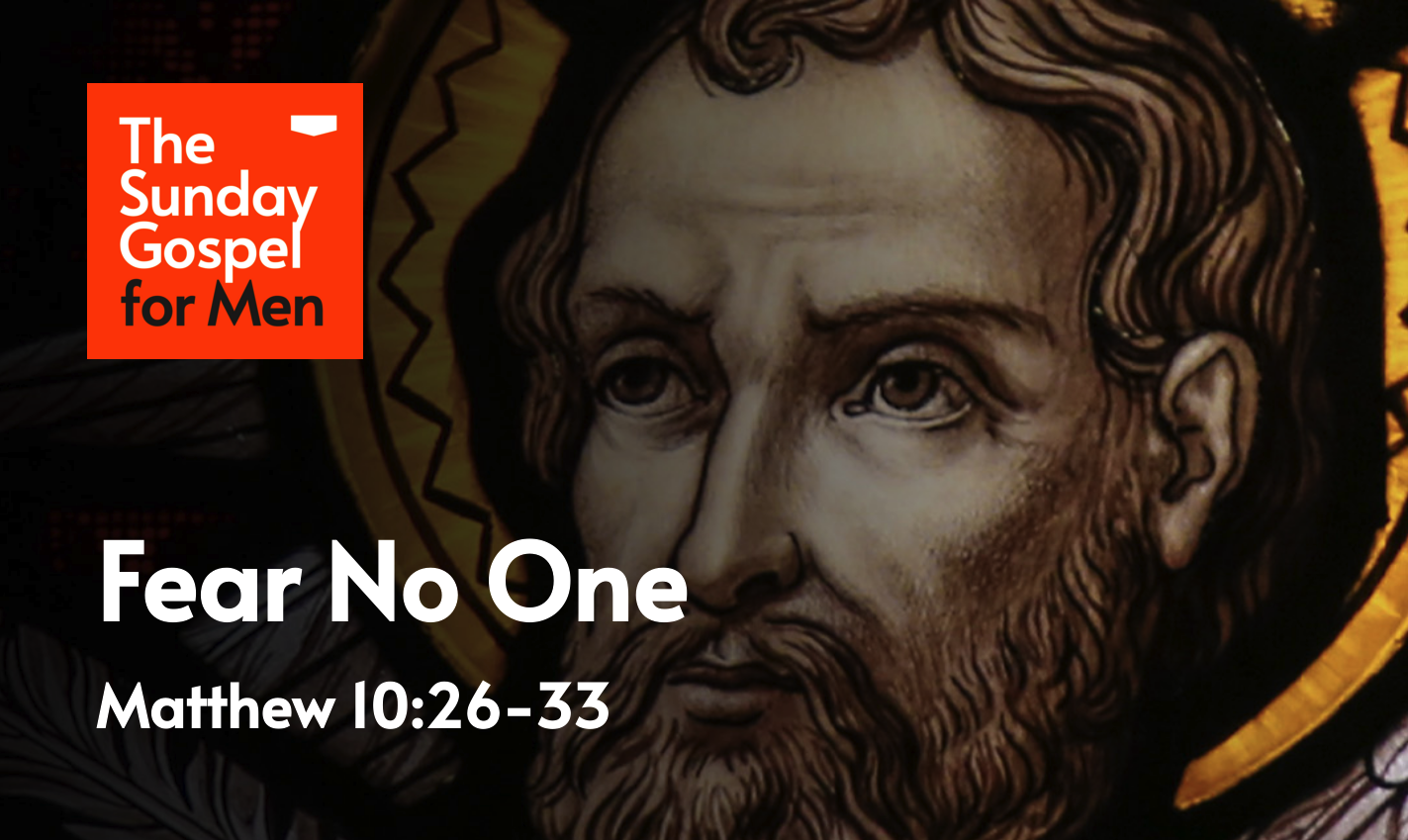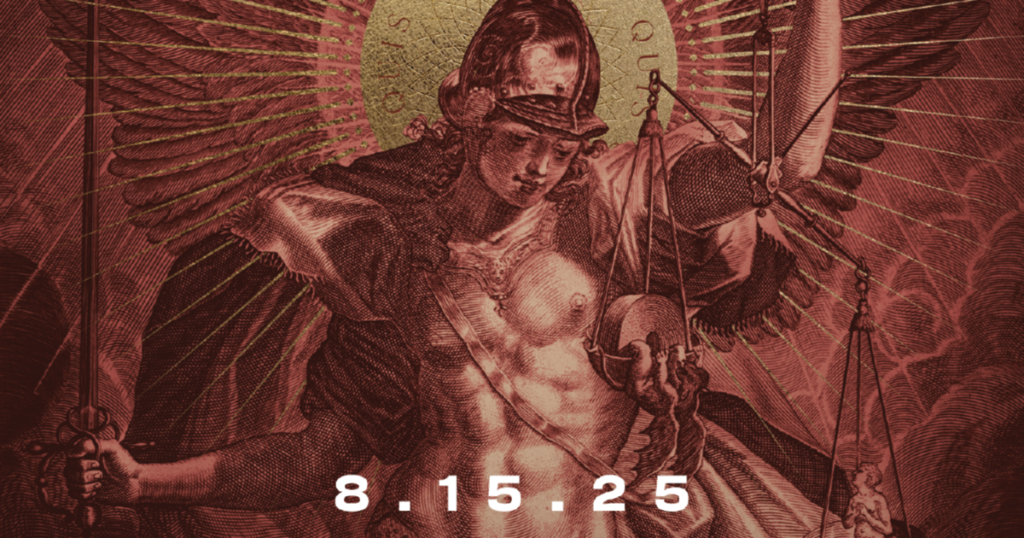For Sunday, June 25th, 2023
Reading
Jesus said to the Twelve: “Fear no one. Nothing is concealed that will not be revealed, nor secret that will not be known. What I say to you in the darkness, speak in the light; what you hear whispered, proclaim on the housetops. And do not be afraid of those who kill the body but cannot kill the soul; rather, be afraid of the one who can destroy both soul and body in Gehenna. Are not two sparrows sold for a small coin? Yet not one of them falls to the ground without your Father’s knowledge. Even all the hairs of your head are counted. So do not be afraid; you are worth more than many sparrows. Everyone who acknowledges me before others I will acknowledge before my heavenly Father. But whoever denies me before others, I will deny before my heavenly Father.”
Matthew 10:26-33
Reflection
In Psalm 27, David asks, “Whom shall I fear?”—quem timebo (Psalm 27:1). And in today’s Gospel reading, Jesus answers this question: “Fear no one.” He then deepens his response, saying that we should fear the one who can destroy our soul, but it is wrong to fear those who only threaten to harm our bodies.
Putting the soul first and striving for indifference about bodily matters forms a very important part of the writing Principle and Foundation of the Jesuit Order, founded by Saint Ignatius of Loyola. In this reflection, Ignatius writes:
[I]t is necessary to make ourselves indifferent to all created things in all that is allowed to the choice of our free will and is not prohibited to it; so that, on our part, we want not health rather than sickness, riches rather than poverty, honor rather than dishonor, long rather than short life, and so in all the rest.
This is no easy task. Have you ever met anyone who was so indifferent to created things that he did not prefer a long life to a short life? Sickness to health? Riches to poverty? Honor to dishonor? The spirit of the worldliness tells us that we must always desire the most dignified place. It says that this desire is purely natural. This spirit tells us that having more money is better than having less money. Saint Ignatius does not say that we should desire to be impoverished but that we should not prefer wealth over poverty. We should accept the state of life that the all-knowing God desires for us.
We ought not to fear sickness. Saint Ignatius was very familiar with infirmity as he was bedridden for several weeks recovering from a cannonball that hit his right leg in the Battle of Pamplona. Today our world is greatly afraid of sickness. We run from it, hiding from worldwide pandemics and the common cold. We are terrified of “those who kill the body but cannot kill the soul.”
We should not be afraid. We should not fear sickness rather than health or a short life rather than a long one. Why should we not be afraid? We should not be afraid because of… sparrows. God so loves his creation that not one sparrow falls from the sky without the Father’s knowledge. A man, made in the image and likeness of God, known by the Father since the moment of conception, and baptized into the death and resurrection of the Son, is certainly worth many sparrows.
Our bodies will die, and our bodies will rise on the last day. This is a fact. We live in a passing world and are made for the next world. We must not fear the trials of this life. Our only fear should be the one who can destroy both soul and body in Gehenna. But even here, we know that Christ has conquered death and Hades. Because Christ has been victorious, we must fear no one.
In your prayer today, do not be afraid. Thank the Lord for his loving care. Thank him for your wealth or poverty, your sickness or health, your long or short life, and your honors or dishonors. “If God is for us, who is against us?” (Romans 8:31).
Is it time for your Exodus? Learn more here.








